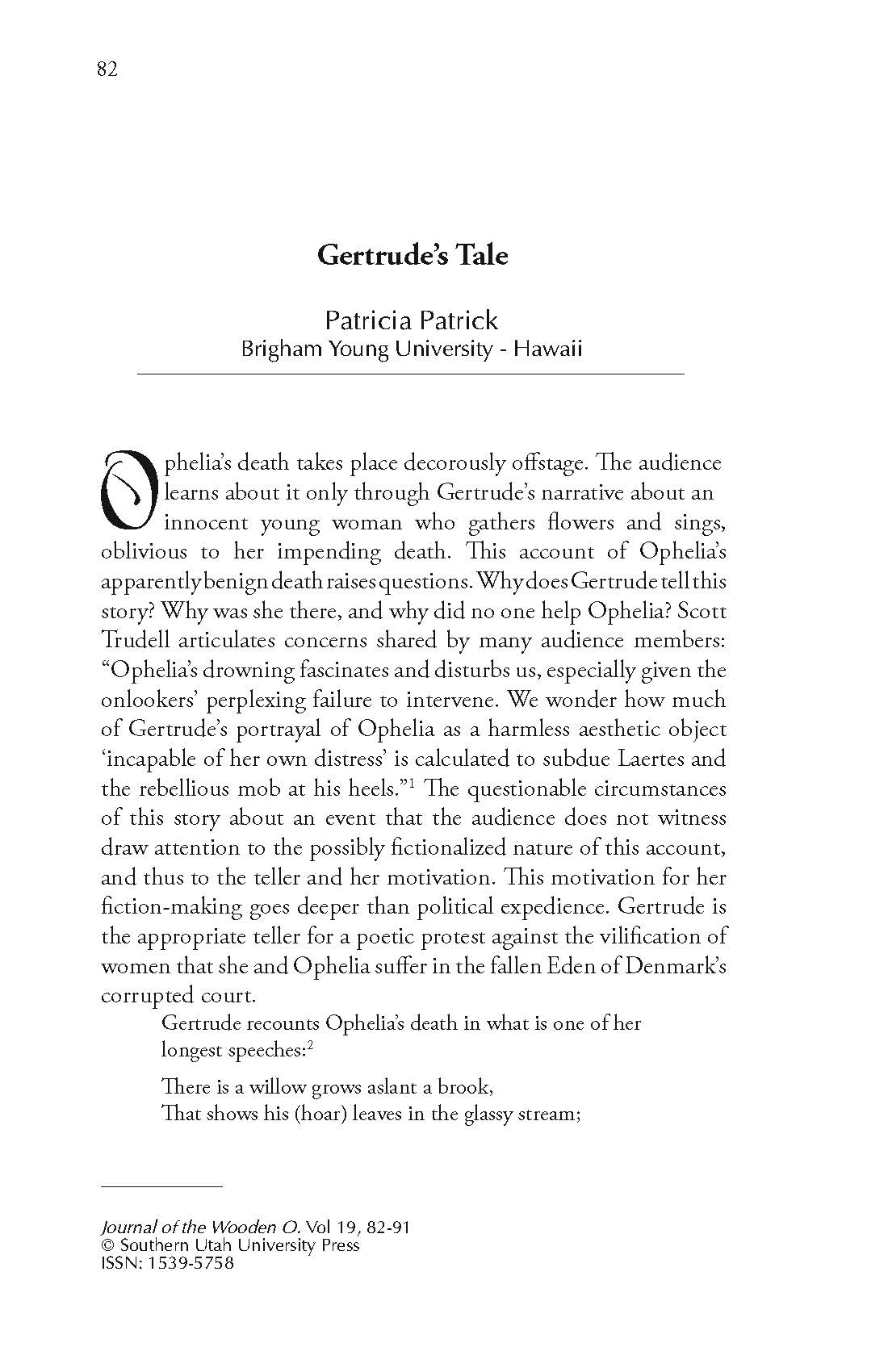Gertrude’s Tale
Main Article Content
Abstract
Ophelia’s death takes place decorously offstage. The audience learns about it only through Gertrude’s narrative about an
innocent young woman who gathers flowers and sings, oblivious to her impending death. This account of Ophelia’s apparently benign death raises questions. Why does Gertrude tell this story? Why was she there, and why did no one help Ophelia? Scott Trudell articulates concerns shared by many audience members: “Ophelia’s drowning fascinates and disturbs us, especially given the onlookers’ perplexing failure to intervene. We wonder how much of Gertrude’s portrayal of Ophelia as a harmless aesthetic object ‘incapable of her own distress’ is calculated to subdue Laertes and the rebellious mob at his heels.”1 The questionable circumstances of this story about an event that the audience does not witness draw attention to the possibly fictionalized nature of this account, and thus to the teller and her motivation. This motivation for her fiction-making goes deeper than political expedience. Gertrude is the appropriate teller for a poetic protest against the vilification of women that she and Ophelia suffer in the fallen Eden of Denmark’s corrupted court.
